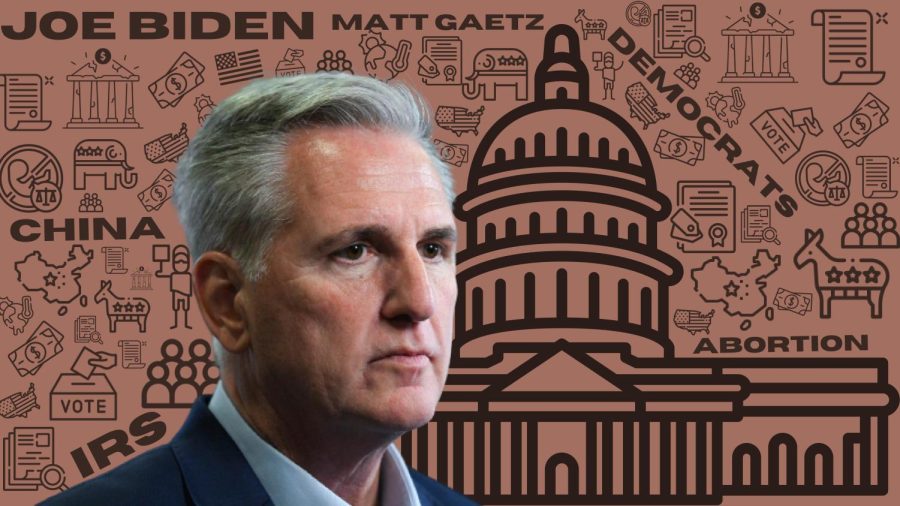Speaker Kevin McCarthy moves to push Republican agenda amidst a divided House
It took 15 ballots for House Representative Kevin McCarthy (R-CA) to become the Speaker of the House, the first time in approximately a century since a Speaker election went past one vote, according to the Washington Post.
According to Public Citizen’s Craig Holman, Americans should “Expect dysfunction and chaos in Congress for the next two years.” Because of the deals with the Freedom Caucus, and because of Democratic-controlled Senate and House, the future remains uncertain for Kevin McCarthy and the rest of the Republican Party.
To become Speaker of the House, a majority is required. The 118th Congress has 222 Republicans and 212 Democrats, making the Republican majority smaller than the originally predicted “Red Wave”, according to USC. However, because 20 Republican defectors from the far-right Freedom Caucus continued to vote for other candidates, including Rep. Bryon Donalds (R-FL), Jim Jordan (R-OH) and former president Donald Trump, and because all 212 Democrats continued to vote for Rep. Hakeem Jeffries (D-NY), McCarthy failed to meet the required threshold 14 times.
As House Speaker, McCarthy is second in line to the president, therefore making him the most powerful man in Congress. He has the ability to delegate committees and control which bills go to the floor for a vote, but because of the difficulties securing the position, McCarthy had to compromise some of his power to the Freedom Caucus in order to earn the vote.
“That was easy, huh?” McCarthy said in response to the Caucus. “I never thought we’d get up here.”
According to the Guardian, the Caucus landed prominent positions on rules and appropriations panels, launched an investigation against the Department of Justice (DoJ) and will benefit from removing the House’s Ethics Oversight Committee.
Despite inner-party tension, Republicans this past week overcame difficulties to push campaign promises into law. In McCarthy’s first week, he was able to send six bills to the floor, one of which was a provision to cut Internal Revenue Service (IRS) funding.
The IRS is the main agency that collects debt and handles taxpayer money. When the Inflation Reduction Act was passed last year and Democrats lowered prescription drug and Medicare costs, Republicans promised on the campaign trail to cut back on federal spending.
According to CNBC, this move would help Americans “struggling under the weight of recent inflation and supply chain shortages.” However, Joe Biden came out to say he would “veto the bill” if it were to ever come on his desk.
“Come on. Is this how House Republicans are starting the new term: cutting taxes for billionaires, raising taxes for working families and making inflation worse?” Biden said, according to AP.
The House also voted on two abortion bills, which would enforce hospitals to protect infants before or after an abortion, and to condemn recent attacks on pro-life institutions, according to CNBC. The future of the bills still remain uncertain.
“I think it’s going to just continue to be a challenge. I think the American public is either going to tune it out, or they’ll tune in once in a while to say, ‘Okay, our politicians left and right, can’t figure it out. And so maybe in two years, we need to vote in some credible people’,” Social Studies teacher Kristy Pommerenke-Schneider said.
The House is up for re-election in two years, but until then, urgency looms over McCarthy and the rest of the Republican Party to push the Republican agenda.

Olivia (Liv) Frey is the Editor-in-Chief and Opinion Editor of North Star News. Ever since joining NSN her freshman year, she has grown a deeper love...







